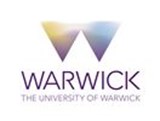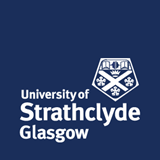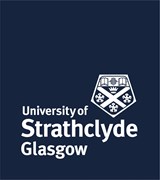Multi-criteria Assessment

Why is multi-criteria assessment important for Smart Local Energy Systems?
Smart Local Energy Systems (SLES) can bring a range of benefits, but there has been no clear consensus on what a “successful” SLES is. Measures to define success need to be identified across all areas, from environmental impact to social, technological and financial performance.
Multi-criteria assessment methods are used to analyse the performance of complex systems and understand the trade-offs between different factors. As such, they can be used to provide reliable information on the strengths and weaknesses of different SLES options. A range of different metrics are used to do this, such as technical performance or financial viability.
The outputs of a multi-criteria assessment provide stakeholders with impartial evidence to help them make decisions. They can also identify barriers that are limiting the development of SLES, in turn helping to increase confidence and reduce risk, potentially leading to the wider adoption of revolutionary SLES.
How did EnergyREV explore these issues?
EnergyREV developed and built upon existing multi-criteria assessment tools to create a tool to meet SLES requirements. The MCA tool has been developed to be used in as part of an iterative process, used to regularly monitor and compare progress and performance during the SLES project. This will help to gain a comprehensive overview of the SLES progress and performance during the implementation period.
Our methodology built upon an extensive review of existing evaluation and multi-criteria assessment tools, together with other outputs from across EnergyREV, to develop a set of processes for a fair evaluation of SLES projects across a broad range of success metrics. These track the performance of the system and the realisation of potential benefits – with the latter aligned to UN Sustainable Development Goals.
These success metrics have been combined into a single multi-criteria assessment tool focussing on six key themes:
- Technical performance
- Data management
- Governance
- People and living
- Business and economics
The MCA tool requires participation of representatives from the SLES project at first to define the objectives, current status and potential of the SLES project concerning each assessment theme and associated criteria. The second step requires the input of the appropriate data that is available for each assessment criteria.
This tool is intended to be used to take a snapshot of the performance of an SLES project across a number of areas of success. This was demonstrated on the Prospering from an Energy Revolution (PFER) Demonstrator and Design projects, enabling stakeholders to identify progression towards success in the key areas that are relevant to their project.
The outputs of this multi-criteria assessment were designed to help provide information about the performance of the PFER projects, give information about the potential for SLES to meet the aspirations of the PFER programme. They also provide information for stakeholders to identify the key areas where there are opportunities for improvement in a SLES.
What did EnergyREV learn?
There is a need for a single, simplified and technology agnostic multi-criteria assessment tool for SLES to understand and demonstrate the benefits they can bring and under what conditions.
Research suggests that there is little appetite amongst stakeholders for comparing different types of SLES, but rather for identifying the benefits and performance of the system relative to its own intended performance. As such, there is a need for an independent standardised assessment tool to help SLES developers to benchmark progress against the project aspirations.
The team
Theme Lead: David Ingram
Co-Investigator: Camilla Thomson
Researcher: Christina Francis
Outputs
2023
Report - Refining the multi-criteria assessment for smart local energy systems
Tool - Multi-criteria Assessment Tool
2020
Report - Developing a Multi-Criteria Assessment Framework for Smart Local Energy Systems (July 2020)
Conference Paper - Developing the framework for multi-criteria assessment of smart local energy systems (July 2020)





















